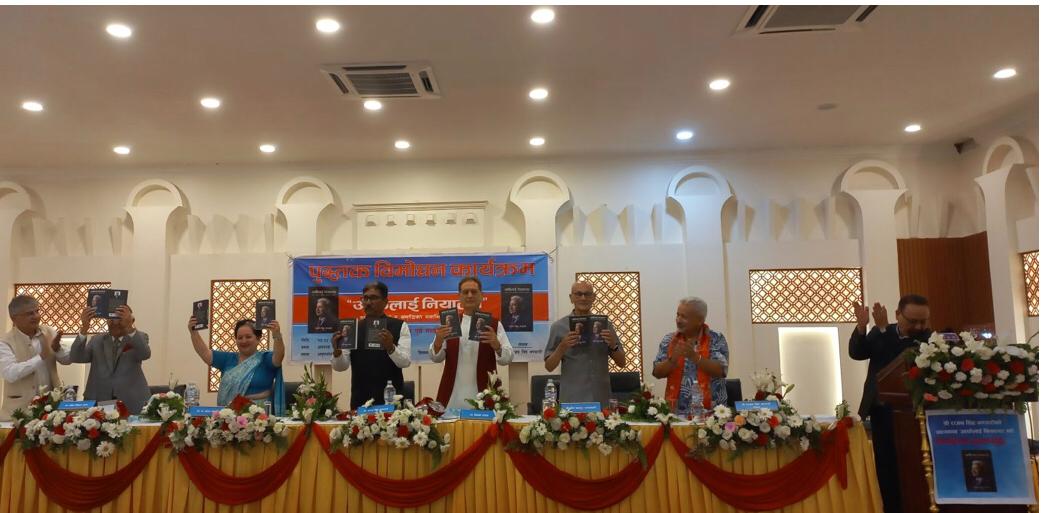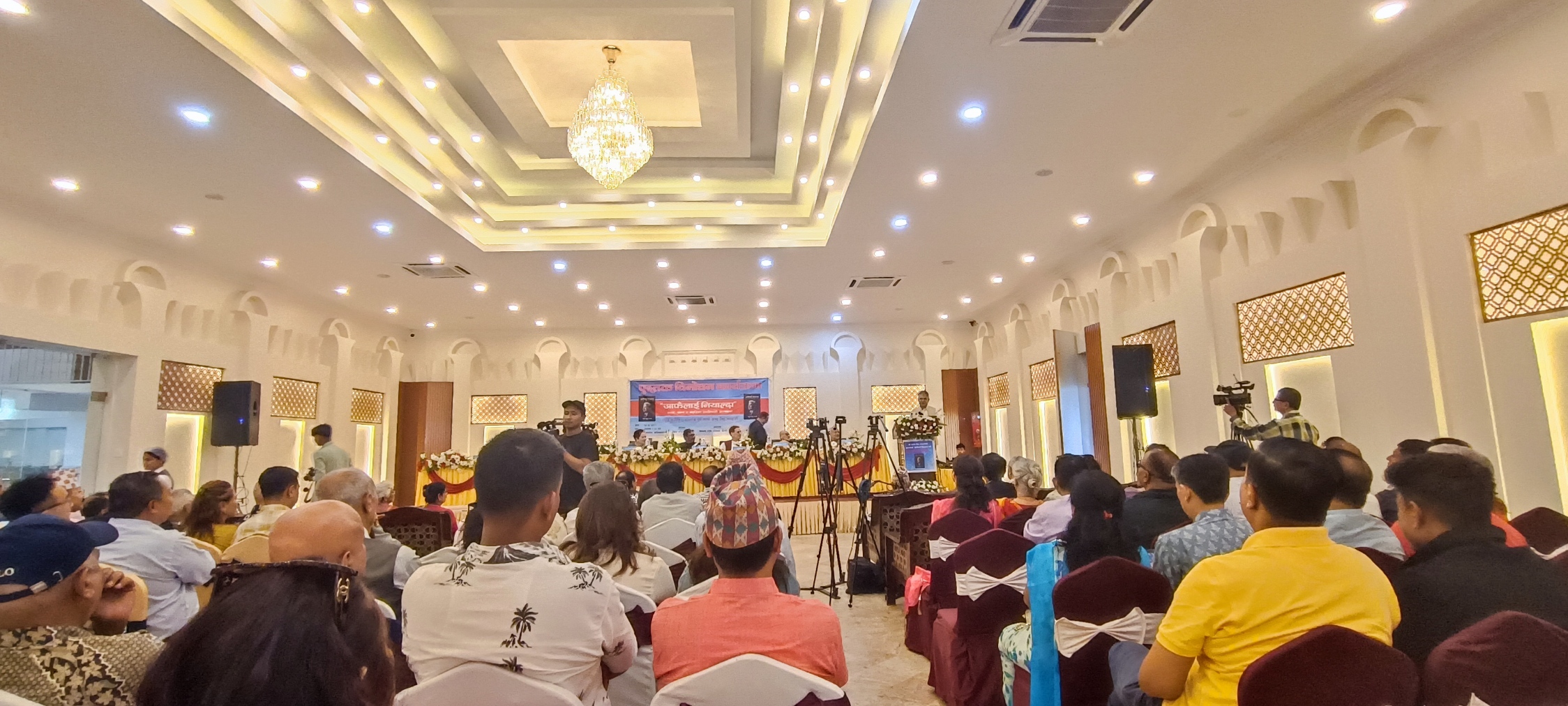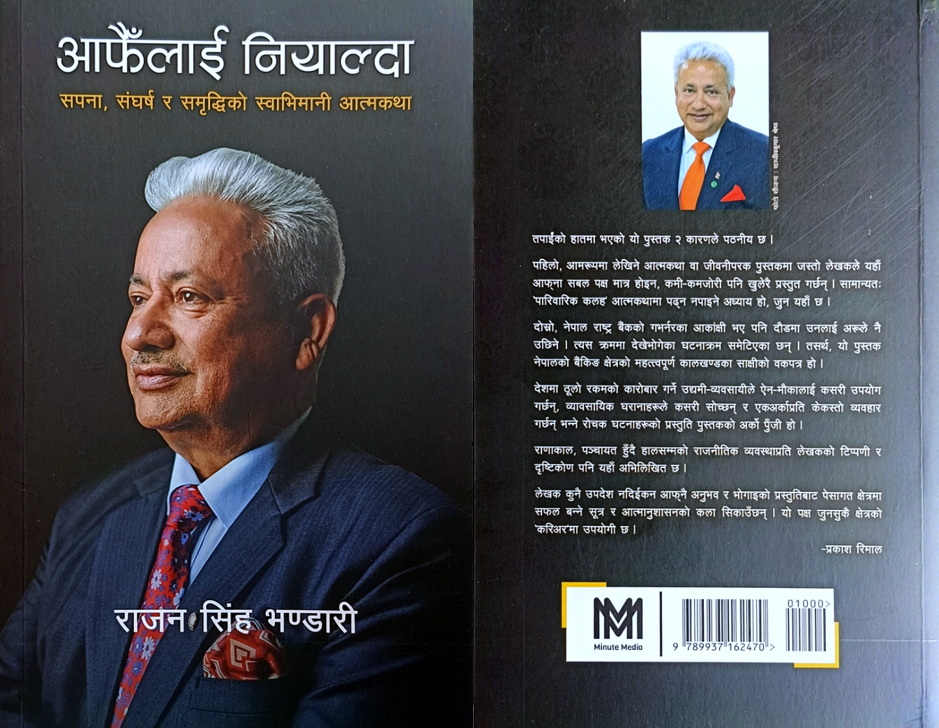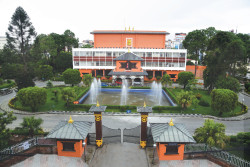Books

Had his corporate stars aligned Rajan Singh Bhandari, the incumbent Executive Director and senior most among the equals, would have moved up his career as Deputy Governor of the Nepal Rastra Bank. And, he would have taken a deserved leap towards one of his maternal uncle's wishful prophecy decades ago: Bhanja, I'd like to see you as the Governor.
Had his superiors kept his word, he would probably have gone on to become the Governor, succeeding his boss Bijaya Nath Bhattarai. But then Governor Bhattarai had an alternative scheme obscurely founded upon the writing on the central bank walls: That Bhandari as Deputy Governor would overshadow him. Governor Bhattarai had apparently shared his anxiety with country head of the International Monetary Fund at that time.
This is just a tip of the iceberg – if you read renowned banker Bhandari's autobiography, Aafailai Niyalda which was released in Kathmandu on Saturday (29th June). The autobiography is published by Minute Media, an upcoming start-up that fancies specializing in telling compelling stories of Nepal and the Nepalis.
In his autobiography, Bhandari introspects over four decades of his banking career, including the 26 years at the central bank where he learned and mastered the art of total banking. Bypassed for the most deserved position of deputy governor, Bhandari felt humiliated and saw no point in sticking to the job. Several months ago, Bhandari had intimated to Governor Bhattarai that he would make an exit if he was denied.
He kept his words. He resigned.
Unstoppable persona

Bhandari's transitional plan after quitting the central bank was that he would take to teaching and he had enrolled for an M.Phil. Degree at Kathmandu University. A Chartered Accountant by training, he already had a Masters in Economics from the Tribhuvan University.
But then destiny had other plans in store.
Kalu Gurung, a top real estate broker of the time, and Surendra Bhandari, a reputed banker came by. The three met in a hotel. Gurung had a mind of using Bhandari's banking expertise to open a commercial bank and pledged on behalf of his group an investment worth a billion rupees. At the time, commercial banks would require a paid up capital of one billion rupees and an authorized capital of two billion to apply for a license.
The proposal made sense to an emotionally injured banker, with 16 years of regulatory experience at the central bank. The three teamed up, flexed their muscles and pulled strings.
Rajan Singh Bhandari formally tendered his resignation as the Executive Director of the Central Bank on 31st December 2006. The following day (1st January 2007) he was appointed the CEO of the Citizens International Bank.
The rest, as they say, is history.
Ecapades and family feuds

Bhandari's 312-page autobiography is not just about the circumstances surrounding his banking career. In 13 chapters, the banker also writes about interesting personal escapades, including his mischiefs while growing up as a privileged son of a Terai landlord and the entitlements that a pampered child enjoyed, and a happy at the same time a rigorous childhood under strict family disciplines. He regales many of those tales.
Last but not the least, this deserves to be stated that Bhandari goes an extra mile while chronicling his personal life trajectory. While family feuds are at best downplayed in passing references as minor misunderstandings between siblings and the kith and kin, Bhandari leaves no holds barred dedicating a whole chapter to explain the ongoing tussles with his younger brothers over ancestral property.
Former Minister Sharat Singh Bhandari, one of the nephews of the autobiographer, who was the chief guest to the book launch, hoped his uncle's public acknowledgement and position on the family feud could actually contribute to find a solution to the conflict.
Will it? Nobody can say just yet.
Rajan Singh prefers to leave that to circumstances as they unfold. For him, live rolls on and the journey continues.






